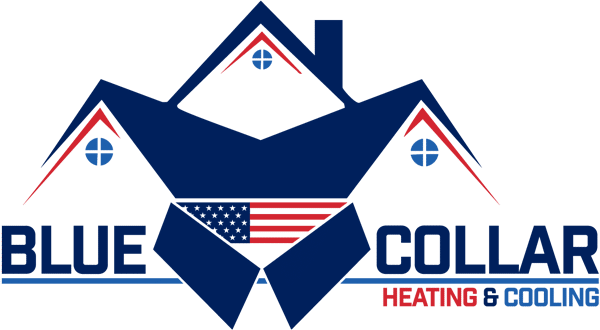When a hurricane is on the horizon, your home’s safety—and your family’s comfort—depend on more than just boarded windows and stocked pantries. At Blue Collar Heating and Cooling, we know that protecting your HVAC and electrical systems is just as critical. From securing outdoor AC units to pre-cooling your home and unplugging sensitive electronics, these 25 expert-approved tips will help you weather the storm with confidence. Whether you’re staying put or preparing to evacuate, use this checklist to minimize damage, reduce risk, and stay as comfortable as possible—before, during, and after the storm.
- Pre-Cool Your Home: Before the storm arrives, lower your thermostat to cool your home. This keeps you comfortable longer if the power goes out.
- Unplug Electronics: Unplug non-essential electronics to protect them from power surges during the storm.
- Turn Off Main Breaker: If flooding is imminent, turn off your home’s main circuit breaker to prevent electrical hazards.
- Elevate Appliances: Raise electrical appliances above potential flood levels to avoid water damage. We can help you assess and elevate your HVAC units and other critical appliances.
- Secure Outdoor Units: Anchor your outdoor AC unit to prevent it from being damaged or dislodged by strong winds.
- Install Surge Protectors: Use surge protectors for essential devices to guard against voltage spikes.
- Generator Safety: If using a generator, place it outside and away from windows to prevent carbon monoxide poisoning.
- Fuel Generators Safely: Always turn off and let your generator cool before refueling to prevent fires.
- Stock Flashlights and Batteries: Keep flashlights and extra batteries accessible for use during power outages.
- Avoid Using Candles: Use battery-powered lights instead of candles to reduce fire risk during the storm.
- Schedule HVAC Maintenance: Have your HVAC system inspected and serviced before hurricane season to ensure optimal performance.
- Replace Air Filters: Install new air filters to keep your HVAC system running efficiently during increased usage.
- Seal Ductwork: Ensure your ductwork is sealed and insulated to prevent moisture intrusion and maintain air quality.
- Install Programmable Thermostat: Use a programmable thermostat to manage indoor temperatures and conserve energy during power fluctuations.
- Trim Surrounding Trees: Cut back branches near power lines and your home to reduce the risk of damage during high winds.
- Turn Off Water Heater: Switch off your electric water heater before the storm to prevent damage from power surges.
- Set Refrigerator to Coldest Setting: Lower your refrigerator and freezer temperatures to keep food colder longer during power outages.
- Freeze Water Bottles for Cooling and Hydration: Fill and freeze water bottles before the storm. They’ll help keep your fridge and freezer cold during power outages and provide drinking water as they melt.
- Gather Important Documents: Collect manuals, warranties, and service records for your electrical and HVAC systems for easy access after the storm.
- Compile Emergency Contacts: Create a list of emergency contacts, including your utility company and service providers.
- Stay Updated on Weather Alerts: Monitor local news and weather advisories to stay informed about the storm’s progress. We can recommend reliable apps and services for real-time weather updates.
- Know Evacuation Routes: Familiarize yourself with local evacuation routes and shelters in case you need to leave quickly. While we ensure your home’s systems are storm-ready, your safety is paramount—know your exit strategies.
- Document Home Inventory: Take photos and make a list of your home’s contents, focusing on electrical and HVAC equipment, for insurance purposes.
- Inspect Electrical Systems Post-Storm: After the storm, call Blue Collar Home Services to inspect your home’s electrical systems before restoring power.
- Engage with Your Community: Collaborate with neighbors to share resources and information, strengthening community resilience.
Looking For A Printable Version?
Download and print our Hurricane Prep tips to stay prepared before a storm.



